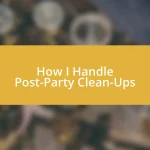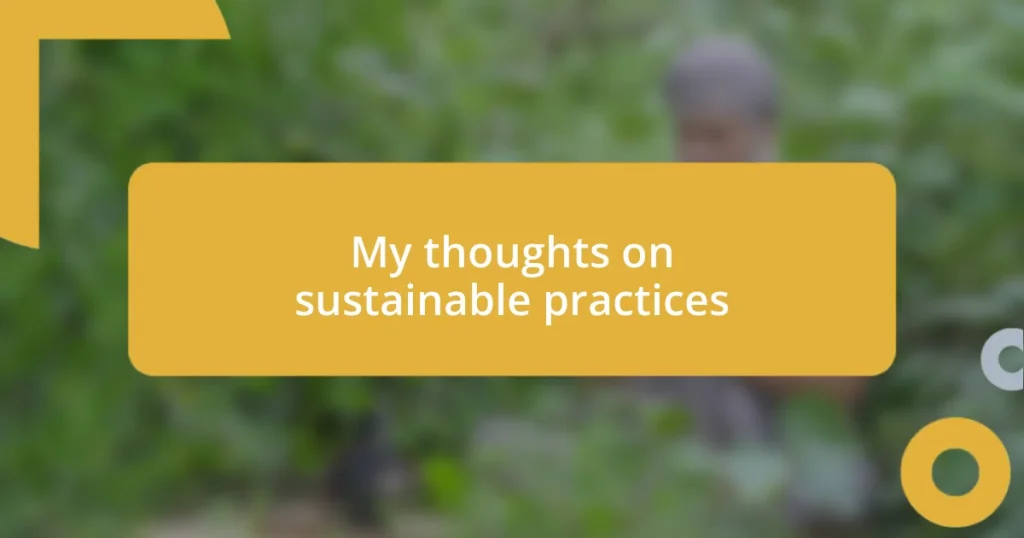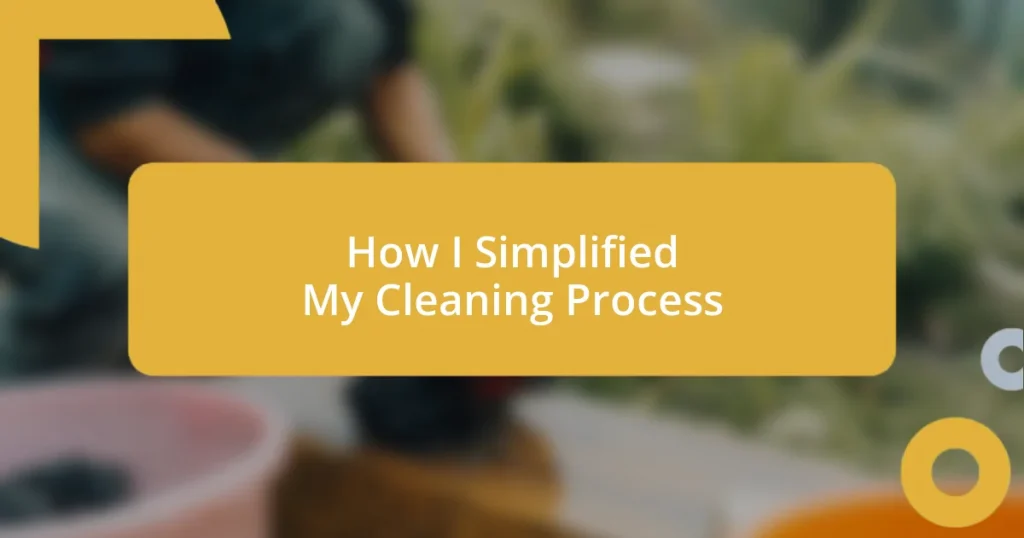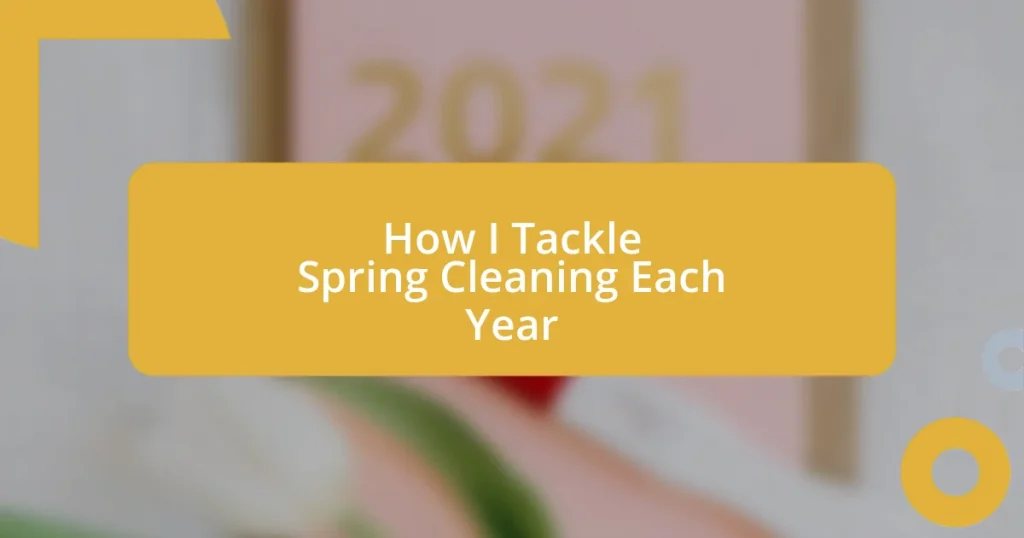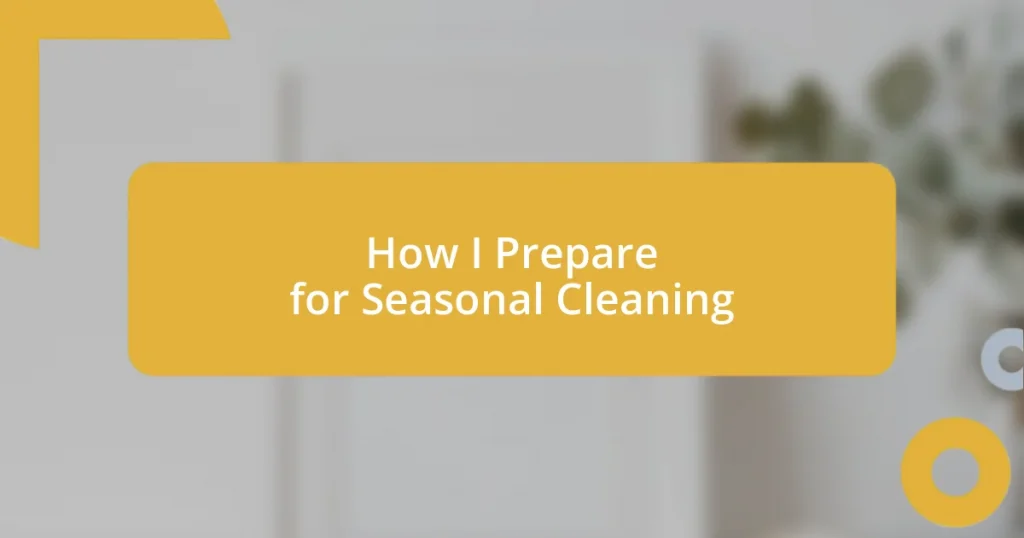Key takeaways:
- Sustainable practices require a mindset shift, emphasizing that individual choices can collectively foster a healthier planet.
- Reducing waste and mindful consumption lead to environmental benefits and personal freedom, while energy conservation strategies provide cost savings and sustainability.
- Future sustainable practices will increasingly revolve around technology, community engagement, and innovative approaches like circular economies and local agriculture support.
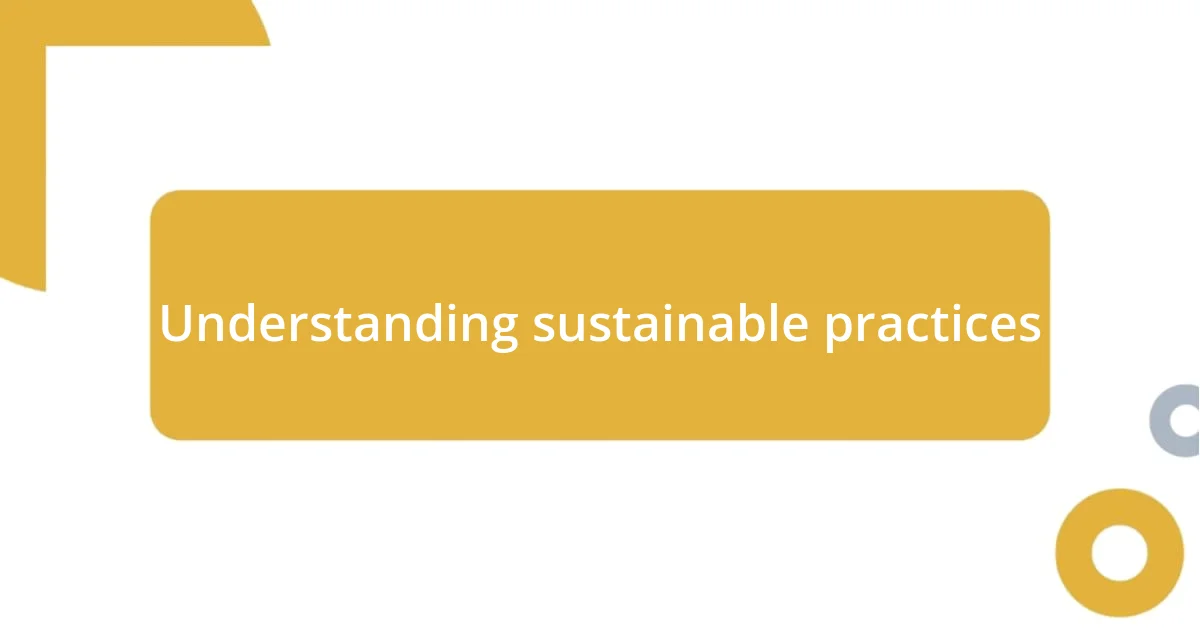
Understanding sustainable practices
Sustainable practices revolve around making choices that protect our planet for future generations. When I think about sustainability, I often recall my first experience at a local farmers’ market. The vibrant colors of organically grown produce, coupled with the genuine conversations with the farmers, made me realize how our food choices can directly impact the environment. Isn’t it fascinating how something as simple as buying local can help reduce our carbon footprint?
There’s an emotional connection to sustainability that runs deeper than just facts. I remember feeling a sense of urgency when I saw the ocean’s plastic pollution firsthand during a beach cleanup. It sparked questions in me: How did we let it come to this? Can we really change our habits for the better? Engaging in sustainable practices isn’t just about actions; it’s about fostering a mindset shift that embraces care for our planet.
Understanding sustainable practices involves recognizing our individual roles in larger systems. Each choice we make—from the products we buy to the energy we use—plays a part in shaping a more sustainable world. I often tell friends that sustainability isn’t a burden; it’s an opportunity. By adopting small changes, we can collectively make a significant impact. What steps are you willing to take to join this journey?
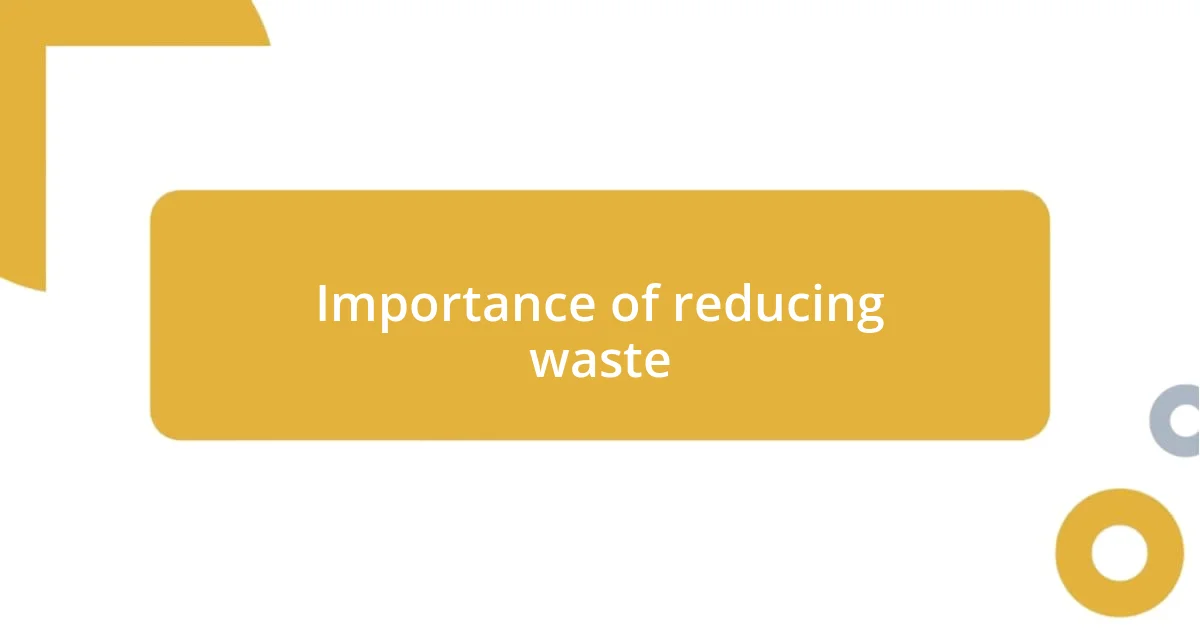
Importance of reducing waste
Reducing waste is crucial for both our environment and personal well-being. I recall a time when I decided to embark on a minimalist lifestyle journey. By decluttering my home and focusing on purchasing only what I truly needed, I felt a profound relief. I realized that every item I eliminated was not just space saved but also a step toward less waste and excess. It’s amazing how waste reduction fosters a sense of freedom, making it feel less like a sacrifice and more like liberation.
- Reducing waste helps conserve natural resources, ensuring they remain available for future generations.
- It minimizes pollution and greenhouse gas emissions, leading to cleaner air and water.
- Personal anecdotes reveal that waste reduction often leads to financial savings, proving that sustainability is not only environmentally beneficial but also cost-effective.
- I’ve noticed that every little effort, from using reusable bags to composting kitchen scraps, creates a ripple effect, inspiring others in my circle to rethink their consumption habits.
Ultimately, fostering a culture that prioritizes waste reduction has the power to transform our communities and planet.
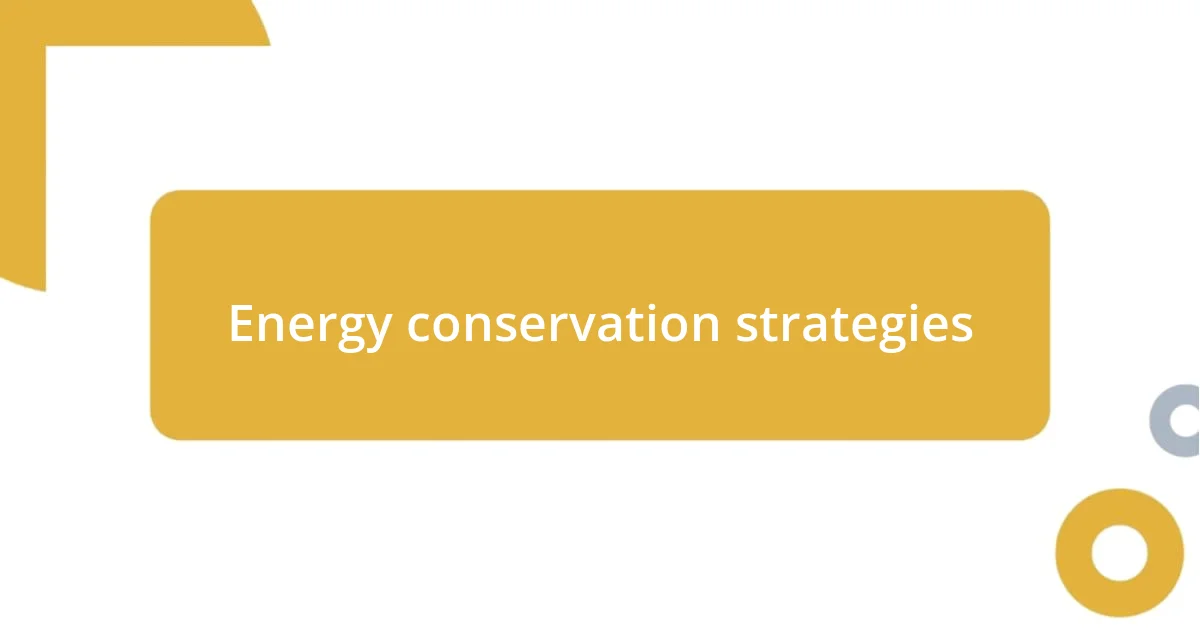
Energy conservation strategies
Energy conservation strategies are essential in our journey toward sustainable living. One of the simplest yet most impactful strategies I’ve implemented is using energy-efficient appliances. The moment I switched to LED bulbs, I noticed a significant drop in my electricity bill. This small adjustment held a dual benefit—lower costs and reduced energy consumption, which feels like a victory on both fronts.
Another strategy that has transformed the way I think about energy is adjusting my thermostat. After realizing that just a few degrees can save a considerable amount of energy, I decided to set my thermostat a couple of degrees lower in winter and higher in summer. The comfort level remained acceptable, but the energy savings were impressive. It’s like finding a balance between comfort and responsibility—one that resonates deeply with my values.
Finally, I’ve found that simply being mindful of turning off lights and unplugging devices can lead to substantial energy savings. A routine I’ve implemented is a nightly checklist to ensure everything is off. The sense of control that comes with these small practices reinforces my commitment to sustainability. Have you ever counted how many devices stay plugged in? It’s eye-opening, isn’t it?
| Strategy | Description |
|---|---|
| Energy-efficient appliances | These appliances use less energy to perform the same tasks, ultimately saving on electricity bills and reducing carbon footprints. |
| Adjusting thermostat settings | By lowering or raising the thermostat by a few degrees, I manage to save energy without sacrificing comfort. |
| Mindful unplugging | Unplugging devices when not in use can cut down on phantom energy usage, leading to significant savings over time. |
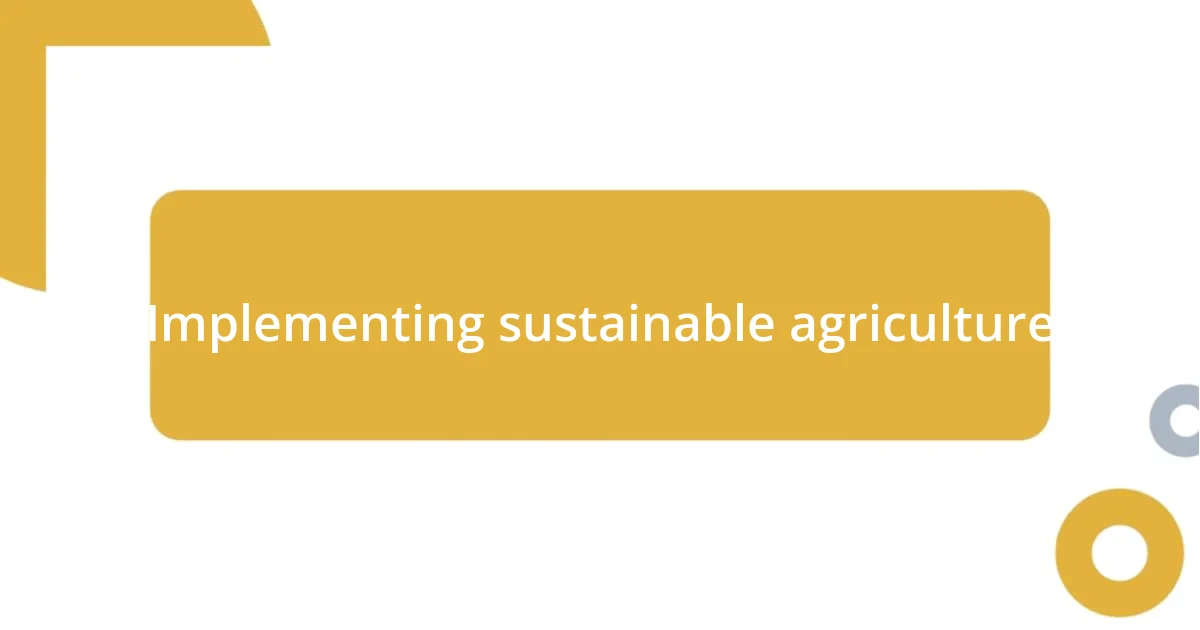
Implementing sustainable agriculture
Implementing sustainable agriculture is something I’ve genuinely come to appreciate for its multifaceted benefits. When I first tried my hand at a small home garden, I was astonished by how rewarding it felt to grow my own vegetables. Each sprout was a triumph, reminding me that even the smallest effort can contribute to a healthier ecosystem. Isn’t it fascinating how nurturing the earth can also nurture us in unexpected ways?
Crop rotation is another practice that really opened my eyes. By alternating the types of crops I planted each season, I noticed an improvement in soil health and a decrease in pests. This strategy not only boosts yields but also minimizes the need for harmful chemicals. It feels gratifying to work with nature rather than against it; don’t we all want to nurture a more harmonious relationship with our environment?
I’ve also ventured into composting, which has completely transformed my perception of waste. Instead of tossing out kitchen scraps, I now see them as valuable resources. Watching my compost pile turn into nutrient-rich soil has been like witnessing magic. It’s an intimate reminder that everything has its place in the circle of life. Have you ever thought about how your waste could be a treasure if you just gave it the chance?
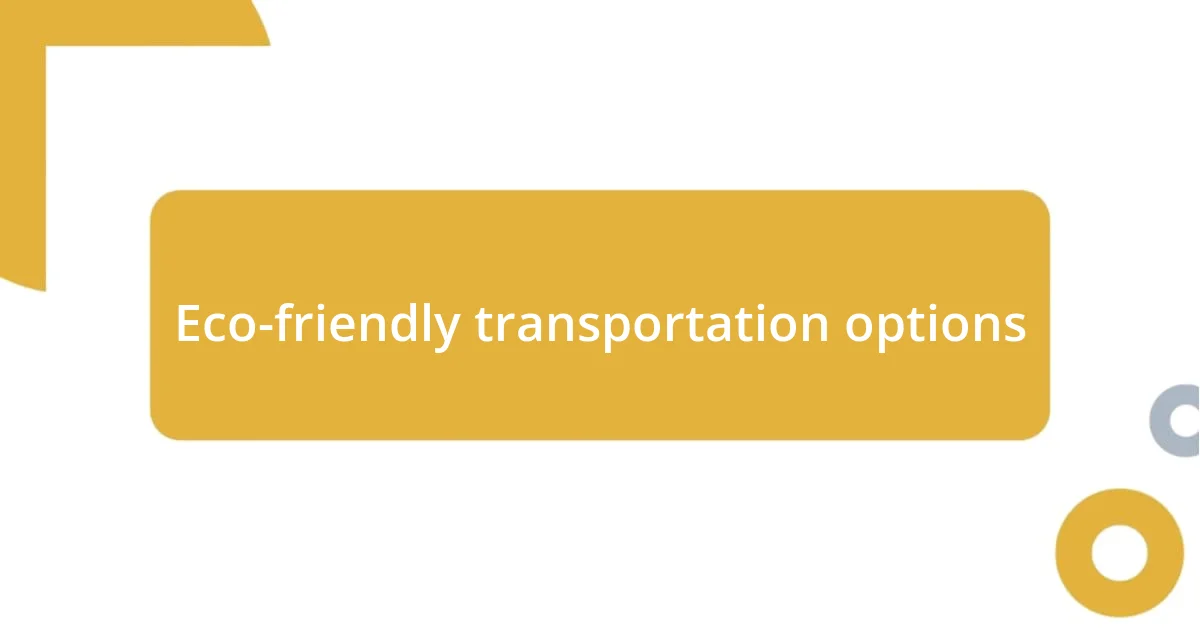
Eco-friendly transportation options
When it comes to eco-friendly transportation options, I can’t help but reflect on my personal experiences with biking. I decided to trade in my car for a bicycle for short trips, and not only has it been a fantastic workout, but the sense of freedom I get while cruising through quiet streets is liberating. Have you ever felt the fresh air on your face as you pedal away, leaving carbon emissions behind? It’s a reminder that sometimes, the simplest choice can lead to pure joy.
Moreover, I’ve recently embraced carpooling more frequently. Coordinating rides with friends not only cuts down on the number of vehicles on the road but also transforms a mundane commute into an enjoyable social gathering. We share laughs, ideas, and sometimes even our book recommendations. Isn’t it amazing how turning a solitary drive into a shared experience can enhance our personal connections while taking a step towards sustainability?
Taking public transportation has become a deliberate choice for me whenever possible. I’ve noticed that riding the bus not only saves money but also reduces my stress levels. There’s something calming about letting someone else do the driving while I indulge in a good book or catch up on podcasts. Have you ever experienced the thrill of watching the city stir to life around you while being part of something larger? It shifts my perspective on travel, making each journey feel more meaningful.
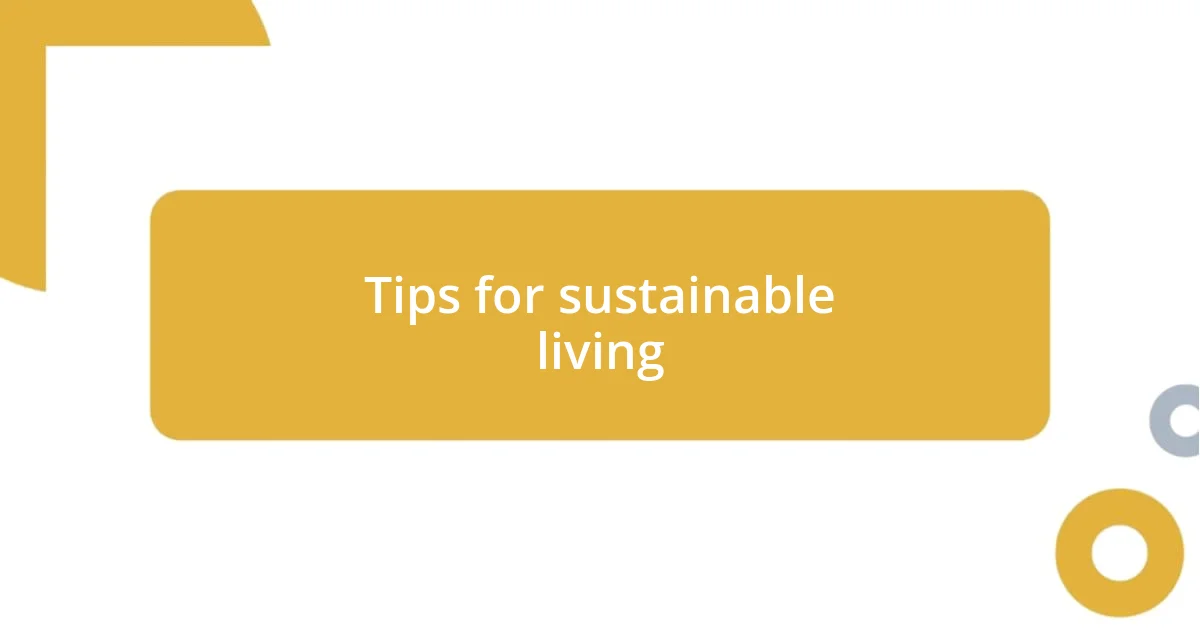
Tips for sustainable living
One of the easiest tips for sustainable living that I’ve adopted is mindful consumption. I used to shop impulsively, but now I take a step back and really consider my purchases. When I ask myself if I truly need something or just want it, I often find that my desire fades. Have you ever felt a weight lift when choosing to skip that tempting item? It’s such a liberating feeling to prioritize quality over quantity.
Another impactful change in my life has been reducing single-use plastics. I switched to reusable bags and containers, and it made a world of difference. The first time I saw my collection of reusable items growing and realized how much waste I was avoiding, I felt proud. Every small action counts, don’t you think? It’s not just about the items we discard, but about redefining our relationship with convenience.
Finally, embracing a plant-based diet has opened my eyes to sustainable eating. I started experimenting with new recipes and discovered incredible flavors in veggies I had never appreciated before. The joy of creating meals from scratch using fresh, local produce has been both exhilarating and fulfilling. It’s fascinating how food can be a powerful tool for change, isn’t it? Each meal becomes a conscious choice that resonates with my values.
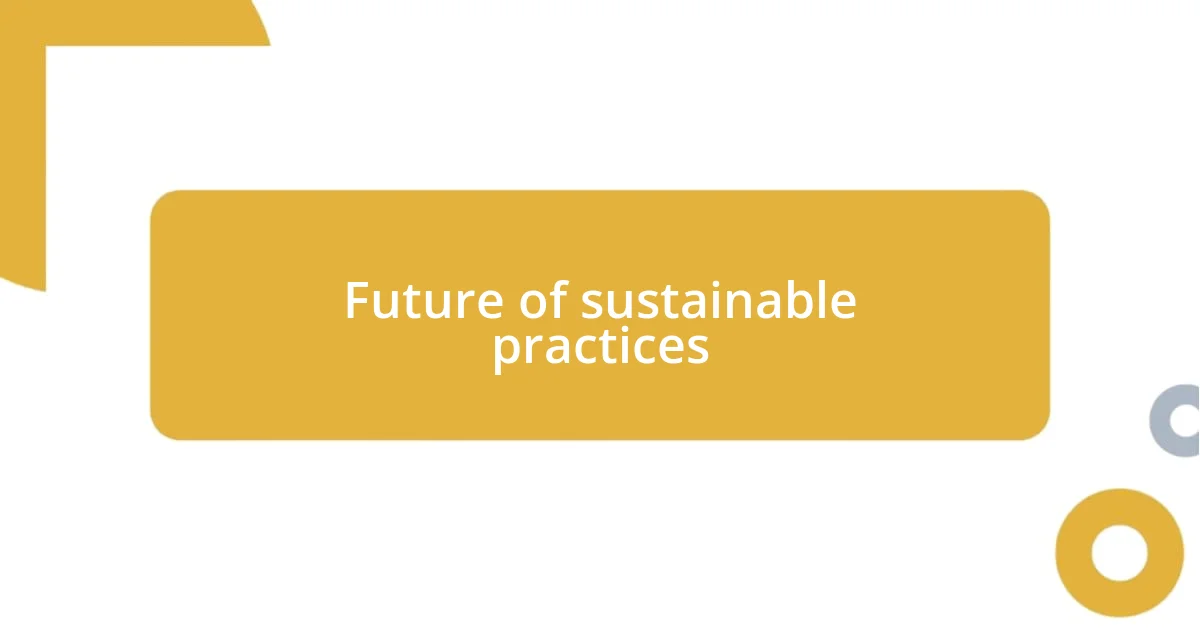
Future of sustainable practices
Looking ahead, I see technology playing a crucial role in sustainable practices. Just recently, I witnessed a demonstration of solar-powered charging stations for electric vehicles in my neighborhood. It made me ponder: how far can we go with renewable energy sources? The prospect of harnessing the sun to power transportation is not just exciting; it feels like a pivotal shift in our relationship with energy itself.
On a more personal note, I’ve started to notice the rising trends in community-supported agriculture (CSA) programs. Joining a local CSA has transformed how I view food—a real connection forms when I see where my produce comes from. Isn’t it amazing to think about supporting local farmers while enjoying fresh veggies? Each week feels like a little treasure hunt, selecting seasonal ingredients that inspire my cooking.
Moreover, I’m optimistic about the increasing emphasis on circular economies. Recently, I attended a workshop on upcycling, which sparked my creativity. I realized how many old items I had lying around could find new life rather than end up in a landfill. Engaging in these practices isn’t just about reducing waste; it’s a reminder that innovation and sustainability can take shape through our everyday choices. How can we bring these ideas into our lives, turning waste into opportunities? It’s a journey I’m excited to explore further.









